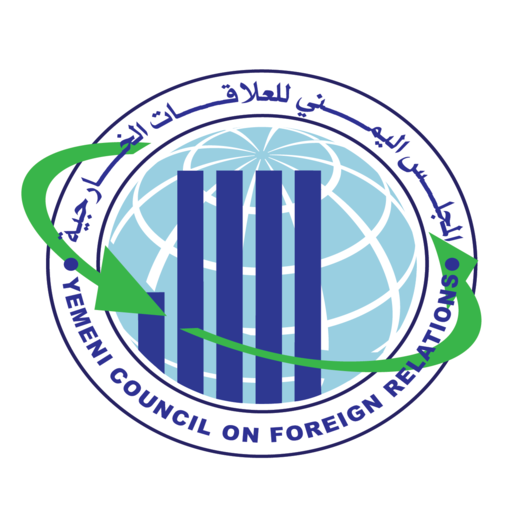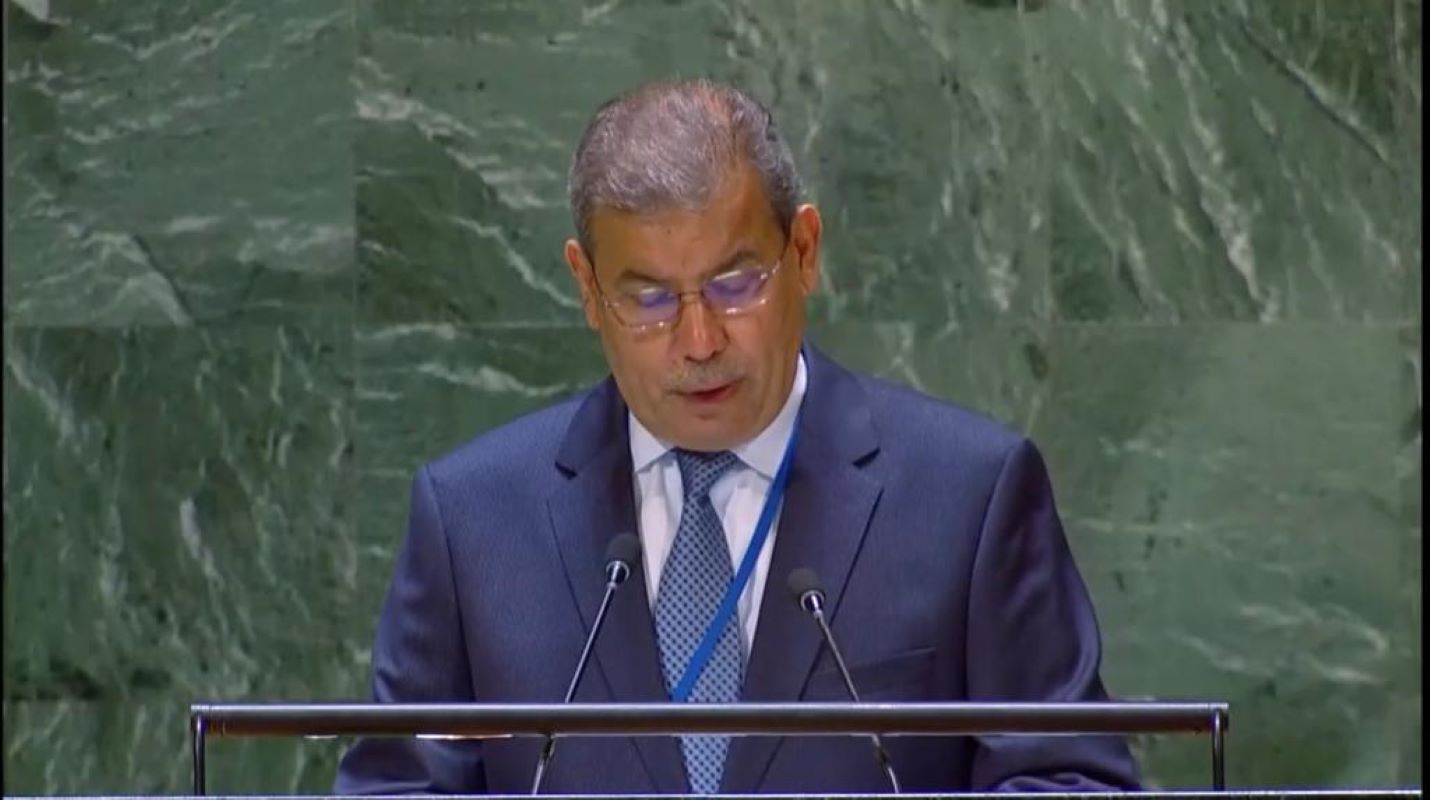Source: SABA News Agency
The Yemeni government has said “the terrorist Houthi militia is heading towards a return to the square of war, despite all the regional and international efforts to end this conflict and achieve peace, in particular the efforts of our brothers in the Kingdom of Saudi Arabia and the Sultanate of Oman to address the Yemeni crisis.”
The government statement, delivered by its Permanent Representative to the United Nations, Ambassador Abdullah al-Sa’adi, at the open session of the UN Security Council on the situation in the Middle East (Yemen), called on the international community to provide all forms of support to Yemen to achieve comprehensive and sustainable peace, restore state institutions, and overcome the escalating humanitarian and economic conditions.
The statement addressed the military escalation of the militias in several governorates, their attacks on villages and civilians under their control by force, as well as their crimes and violations against civilians, including killings, displacement, and the bombing of homes, in an attempt to break the will of the Yemeni people and subdue them to their coup project and extremist ideas.
The statement indicated the continued systematic economic war of the militias against the Yemeni government and people, the threat to international maritime navigation in the Red Sea and the Bab al-Mandab Strait, and the endangerment of regional and international peace and security, as well as their insistence on prolonging the conflict, which would multiply the humanitarian suffering and thwart the regional and international efforts to end this war and restore the state.
The statement emphasized that Yemen is now on the brink of a critical and difficult stage after ten years of the Houthi militia’s coup and its war against the Yemeni state and national consensus, as well as the aspirations of the Yemeni people for stability, security, construction, and development, noting that this war has left a disastrous economic and humanitarian situation.
The statement reiterated the Yemeni government’s commitment to not exposing the Yemeni people in the areas under the control of the Houthi militias to further economic burdens due to the unilateral policies of these militias, and to alleviate their humanitarian suffering and the impact of this war, in line with the principle of flexibility and its continuous support for the regional and international efforts to end the conflict.
In this context, the government called on the Security Council and the international community to assume their responsibilities in continuing to exert more pressure on these militias and to urge them to prioritize the interests of the Yemeni people, rather than holding them hostage to the interests of their supporters, and to refrain from dragging Yemen and its people from one war to another, and instead to engage in the peace efforts led by our brothers in the Kingdom of Saudi Arabia, in order to launch a political process that meets the aspirations of all Yemenis in restoring the state institutions that guarantee rights, freedoms, and equal citizenship, and achieve security, stability, and development, in accordance with the agreed political solution frameworks, namely the Gulf Initiative and its implementation mechanism, the outcomes of the National Dialogue Conference, and the relevant UN Security Council resolutions, foremost among which is Resolution 2216, which constitutes a roadmap for addressing the Yemeni crisis.
The government’s statement delivered in the Security Council’s session highlighted the violations and obstacles that humanitarian and relief work faces in areas controlled by the Houthi militia:
The statement warned of the violations and obstacles that humanitarian and relief work faces in areas controlled by the Houthi militia, including the militia’s forcing of international organizations and United Nations agencies in their areas of control to obtain their prior approval when hiring any local or foreign employee and handing over the organizational structures of each organization, preventing their staff from leaving the country, and the militia’s storming of the headquarters of the United Nations High Commissioner for Human Rights in Sana’a.
This step comes as a continuation of the approach of these militias in putting pressure on these organizations and UN agencies to tighten control over them and divert their activities to serve their own goals.
The statement pointed out that, despite the lapse of more than two months since the detention of dozens of employees of international and local organizations and United Nations agencies working in Yemen, and despite the calls and appeals of the Yemeni government at the highest level, the measures and steps taken by the United Nations to protect its staff and save their lives have not risen to the required or expected level.
It emphasized that the absence of taking these measures and the hesitant international positions have encouraged these militias to continue their violations and crimes against the workers in these organizations and UN agencies without any regard for the disastrous consequences of these practices on the difficult economic and humanitarian conditions in the areas under the control of these militias.
The government renewed its call to relocate all headquarters of international organizations and United Nations agencies operating in Yemen to the temporary capital, Aden, stressing that the time has come to take this important step in order to preserve the safety of humanitarian work and the lives of workers in this field, and to ensure the appropriate climate for carrying out humanitarian tasks and providing humanitarian assistance to all those in need without discrimination and without exposing them to danger.
The statement also touched on the heavy rains and torrential floods that hit a number of governorates, including the city of Hodeidah, causing serious damage to infrastructure, massive destruction of public and private property, dozens of civilian casualties, and the displacement of most of the internally displaced people, and the interruption of public services.
The statement called on all regional and international partners, countries, financial institutions, international and humanitarian organizations, to support the government’s efforts to address these damages and the disaster that exceeds the capabilities of the government and local authorities in the affected areas, and to provide urgent support in all its forms to assist the affected and rehabilitate the infrastructure.
The statement of Yemen delivered by its Permanent Ambassador in the UN Abdullah al-Sa’adi pointed out that the accumulation of the effects of war and disasters related to climate change has exacerbated the humanitarian situation in Yemen, making the recovery process led by the government more difficult, stressing that there is a need to take urgent measures to meet the emergency humanitarian needs in the affected cities, especially after the government declared the city of Hodeidah a disaster area, and to address the long-term effects of climate change and reduce the increasing risks of climate disasters threatening the country.
The statement praised the prompt relief response from the brothers in the Kingdom of Saudi Arabia through the King Salman Humanitarian Aid and Relief Center and its relief interventions to alleviate the suffering of citizens in the affected areas.
The statement affirmed that the Yemeni government is taking a set of measures aimed at relieving the suffering of the Yemeni people and mitigating the disastrous economic, social and humanitarian consequences, and stopping the economic deterioration and stabilizing public services, despite the significant challenges represented by the suspension of oil exports for more than two years, which accounts for 70% of the total public resources of the state, due to the targeting of oil export ports by the Houthi militias, depriving the Yemeni people of their most important resources.
It pointed out that these efforts come through the development of strategic plans by the government and the determination of its priorities in finding sustainable solutions at the service and development levels, and creating regional and international partnerships. In addition to continuing to work at a high pace to enhance transparency, accountability and fight corruption, and implement economic, financial and administrative reforms as the main title of the current stage.
The statement said: “in light of the gloomy picture of the current humanitarian situation, and in the face of the huge funding gap for the 2024 Humanitarian Response Plan in Yemen, the decline in international funding for humanitarian operations in Yemen has had disastrous effects on various sectors, particularly the health sector, where it is expected that more than a thousand health facilities will be closed and the lives of more than 500,000 women will be at risk of death, and 600,000 children will be deprived of vaccination and health care services, in addition to the weakness of the ability to confront the outbreak of many epidemic diseases.”
The statement also renewed the call for all fraternal and friendly countries and donor international organizations to support the Humanitarian Response Plan in a way that meets the existing humanitarian needs in various sectors.
It also renewed call to the United Nations and the international community to keep the humanitarian situation in Yemen on the list of its priorities to overcome the current circumstances and avoid the potential humanitarian catastrophe.

